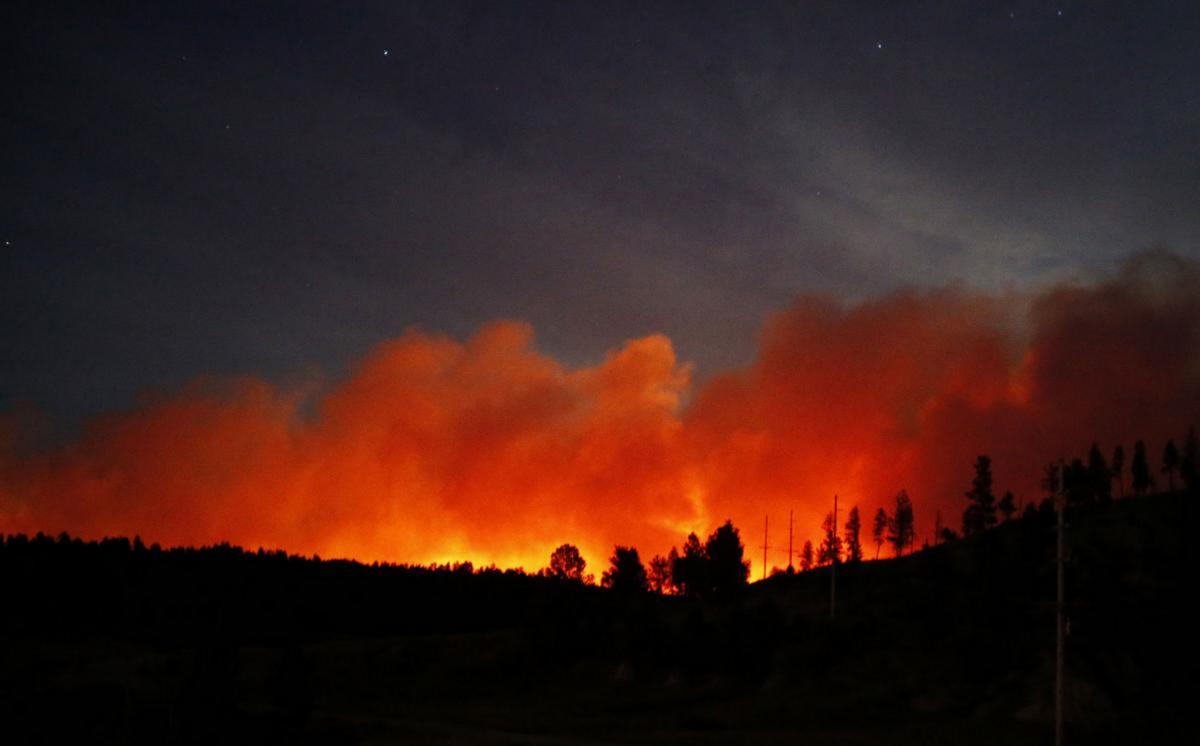FOREWORD
Aaron Wernham MD, MS
Dr. Wernham is Chief Executive Officer of the Montana Healthcare Foundation (2014-present). He is also a family physician with experience in both public health and medical practice. Dr. Wernham developed and led the Health Impact Project, a major national initiative of the Robert Wood Johnson Foundation and served on several National Academy of Sciences committees.
January 2021
In recent years, Montanans have seen record-breaking heatwaves and intense fire seasons. The Montana Climate Assessment [1] (MCA) indicates that the state will continue to experience rising temperatures through the end of the century, along with increased smoke from wildfires and extreme climate events ranging from flood to drought. These conditions have the potential to threaten our health, particularly for the growing share of Montanans who are over the age of 65, and for those who are more vulnerable due to disabilities, chronic health conditions, or the lack of health insurance and limited access to healthcare. This Special Report of the MCA, Climate Change and Human Health in Montana, focuses on climate change issues that impact Montanans. Its key messages and recommendations highlight the challenges facing communities and healthcare professionals, as well as provide important guidelines for better monitoring, preparedness, and action.
In 2016, under a mandate from the United States Congress, the US Global Change Research Program released a foundational report titled The Impacts of Climate Change on Human Health in the United States: A Scientific Assessment[2]. The report offered a view of climate-related health impacts at the national level, such as increases in heat-related illness, sea-level rise and displacement of coastal communities, changing patterns in insect-borne diseases, and threatened water supplies. No report to date, though, has examined climate-related health risks in Montana.
After publication of the MCA, public health and healthcare professionals made the point that, although its coverage of water, forests, and agriculture was a good start, there was a need for information on the state’s most valuable resource: its people. They saw an urgent need for a state-specific health assessment and, most importantly, for practical ways to help communities address the health risks. To this end, in July 2018 a workshop was convened to discuss preparing a new special report to the MCA on health challenges related to climate change in Montana. That workshop, attended by 23 climate scientists, health professionals, and other stakeholders, laid the foundation for this assessment, which is the result of more than two years of work by members of that group, with robust peer review and input from Montana citizens.
Even though many face workforce shortages and limited funding, local public health agencies and healthcare providers lead the response to a long list of health challenges—from mental illness and substance use disorders, to seasonal flu, to the current COVID-19 pandemic. In this context, the need for this report is evident: clear, practical recommendations will make it easier to respond effectively and reduce the health risks of climate change given that staff and time are limited in many public health and healthcare centers in Montana.
Climate Change and Human Health in Montana aims to provide up-to-date information and to explain the impacts and potential solutions in a way that can be understood by everyone. Groups that seldom work together—climate scientists, healthcare and public health professionals, and leaders from non-governmental organizations—came together to contribute to the report.
The report reflects the proactive leadership of our state’s healthcare and public health communities, who came together to advocate for the topic and contribute to the report. Many of the contributors have worked for years to educate peers about the health risks of climate change. Moreover, some tribes and rural communities are in the process of conducting, or have already conducted, climate and health assessments, and these efforts contributed to and helped pave the way for this report.
The last section of the report provides practical recommendations for healthcare providers, public health officials, communities, and individuals on how to prepare for the future. These guidelines can serve as a template for planning and identifying areas of vulnerability and for assisting communities in preparing for and reducing the impacts of climate change on public health.
Climate Change and Human Health in Montana is a first step in preparing for our changing climate, and it deserves to be updated as new information becomes available and unforeseen situations arise. I hope the report is widely studied and becomes the go-to reference for public health officials, healthcare professionals, and communities as we work together to mitigate the effects of climate change in Montana.
[1] Whitlock C, Cross W, Maxwell B, Silverman N, Wade AA. 2017. 2017 Montana Climate Assessment. Bozeman and Missoula MT: Montana State University and University of Montana, Montana Institute on Ecosystems. 318 p. Available online http://montanaclimate.org. Accessed 9 May 2020. doi:10.15788/m2ww82.
[2] [USCGRP] US Global Change Research Program. 2016. The impacts of climate change on human health in the United States: a scientific assessment. Crimmins A, Balbus J, Gamble JL, Beard CB, Bell JE, Dodgen D, Eisen RJ, Fann N, Hawkins MD, Herring SC, Jantarasami L, Mills DM, Saha S, Sarofim MC, Trtanj J, Ziska L (eds). Washington DC: US Global Change Research Program. 332 p. Available online https://health2016.globalchange.gov/low/ClimateHealth2016_FullReport_sma.... Accessed 14 May 2020.

